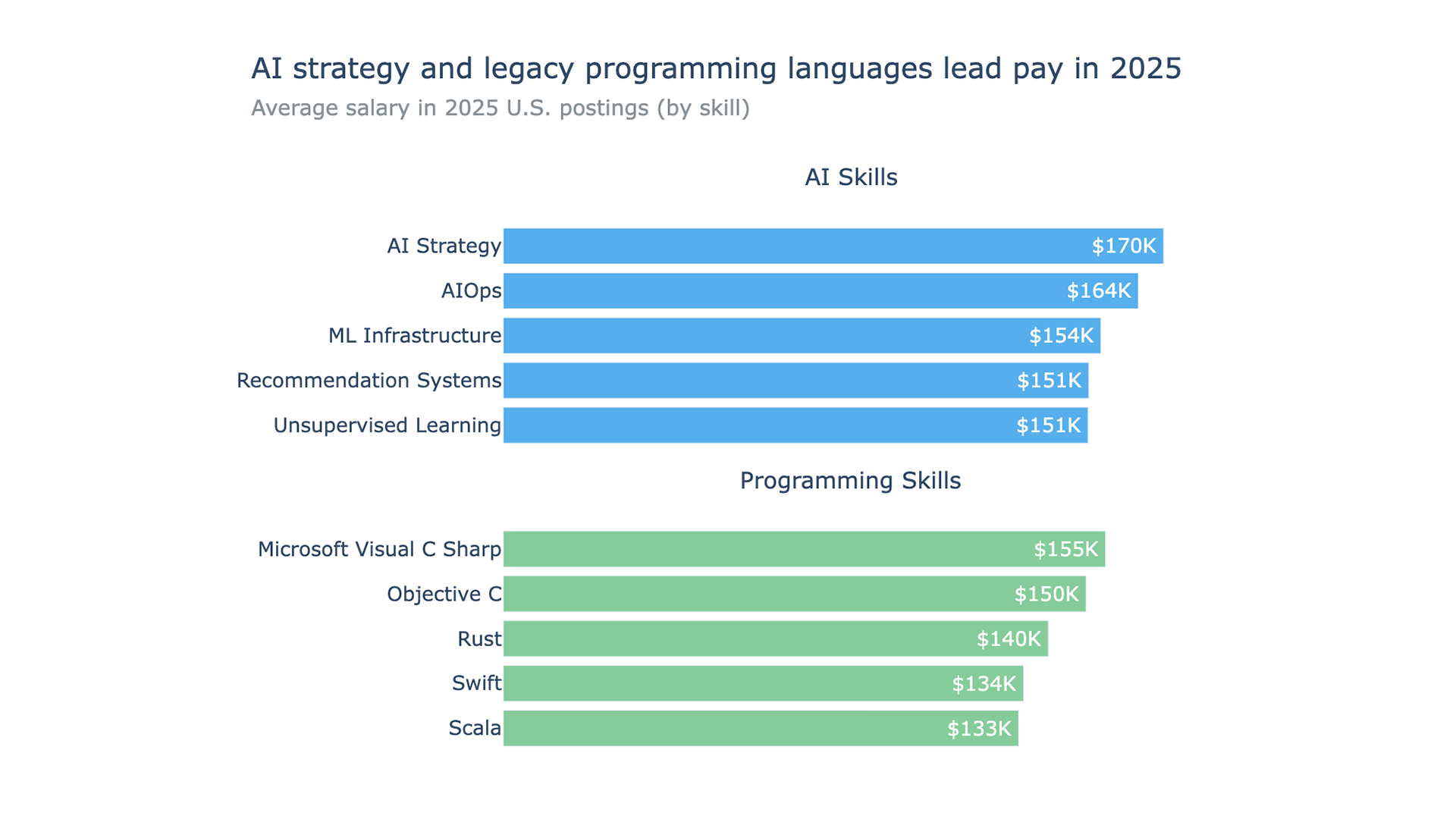AI skills boom meets reality check in new data
Data shows AI skills catching up fast, narrowing the gap with programming in employer demand but findings temper popular narrative that AI skills already dominate hiring.
Employers are shifting their focus from traditional programming to artificial intelligence skills, according to new labour market data from workforce intelligence firm Revelio Labs. The findings temper the popular narrative that AI skills already dominate hiring demand, showing instead that they are rapidly catching up as programming begins to plateau.
The findings, drawn from job postings across the United States, reveal that AI-related skills now appear in a growing share of new postings, while programming skills, though still more common, are beginning to lose ground. Programming skills continue to offer the highest average salary premium, at 8.2%, although individual AI specialisms such as AI strategy now command the highest absolute pay levels.
- Applied AI skills such as AI Prompting and OpenAI API show the fastest pay growth
- AI strategy and machine learning infrastructure remain among the highest-paid skill areas
- Demand for professional certifications is rising as employers seek verifiable credentials
- Business software skills, including Microsoft 365 and CRM tools, are losing ground
- Legacy programming skills remain well paid due to their role in enterprise systems and a shrinking expert base.
Revelio Labs’ analysis shows that the demand for AI expertise is expanding beyond core development teams. Employers are increasingly embedding AI into product development, operations and decision-making processes, signalling a gradual transition from research and experimentation to real-world application.
Among AI skills, those linked to implementation, such as AI Prompting, AI Markup Language and the OpenAI API, are seeing the fastest pay growth. These roles focus on deploying AI systems and integrating large language models into workflows, reflecting the industry’s growing emphasis on practical adoption over theoretical research.
The study also highlights a rising premium for AI strategy and machine learning infrastructure, as organisations seek to manage AI initiatives and scale advanced capabilities within enterprise settings.
In contrast, programming skills associated with older systems, such as Microsoft Visual C#, Objective-C and IBM Assembly, continue to attract high salaries because of a limited pool of specialists. However, the share of postings requiring these skills is shrinking relative to newer technologies, suggesting that while legacy expertise remains valuable, it may not offer sustainable long-term career prospects.
Beyond AI and programming, demand for professional certifications is also increasing, consistent with employers’ preference for verifiable technical credentials during times of economic uncertainty. Conversely, demand for general business and productivity software skills, such as Microsoft 365 and CRM tools, is declining as AI automates more routine digital tasks.
Revelio Labs’ econometric analysis, based on U.S. job postings from 2025, controls for geography, industry, role and seniority to isolate the salary impact of specific skills. The research concludes that while programming and AI remain the two highest-paying skill domains, the strongest salary momentum now lies in applied AI, where innovation is most closely tied to business outcomes.
Revelio Labs said employers are rewarding skills that bring AI into practice rather than focusing solely on research. The firm noted that programming remains valuable, but that applied AI fluency is becoming the defining skill for technical professionals.


